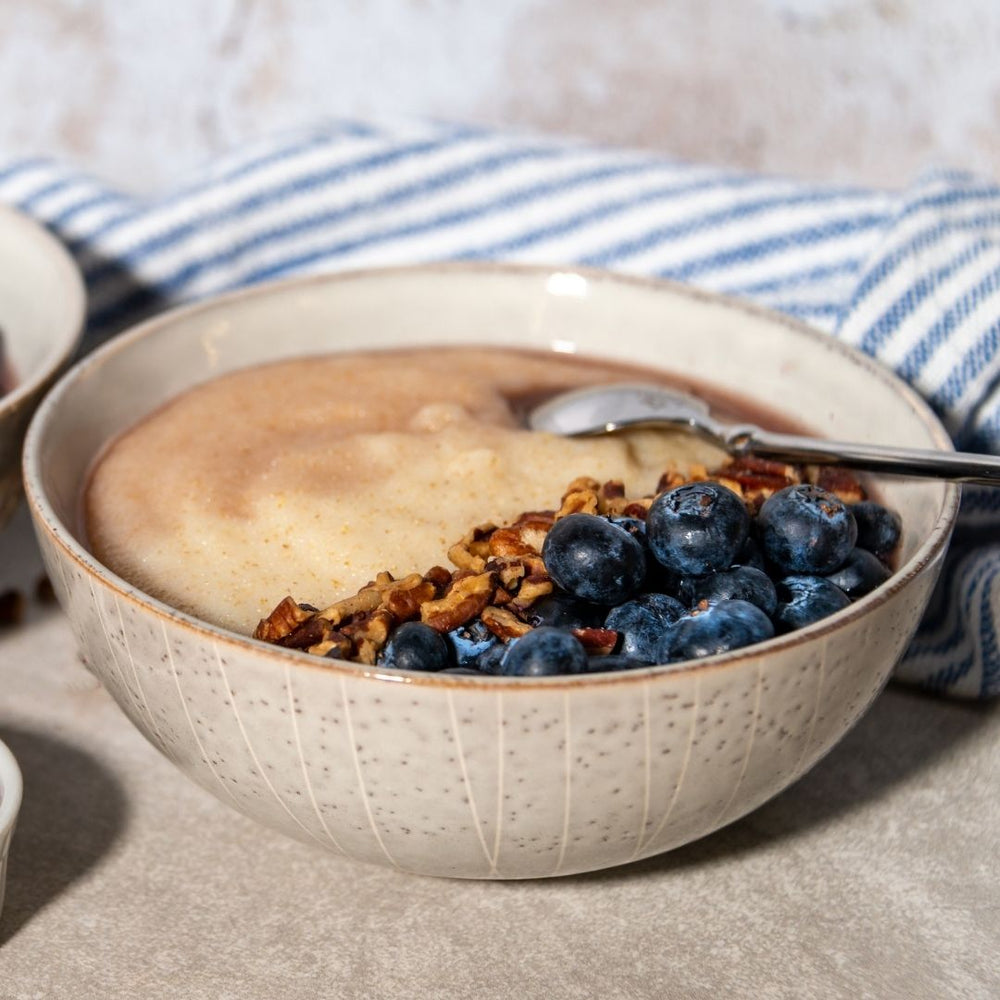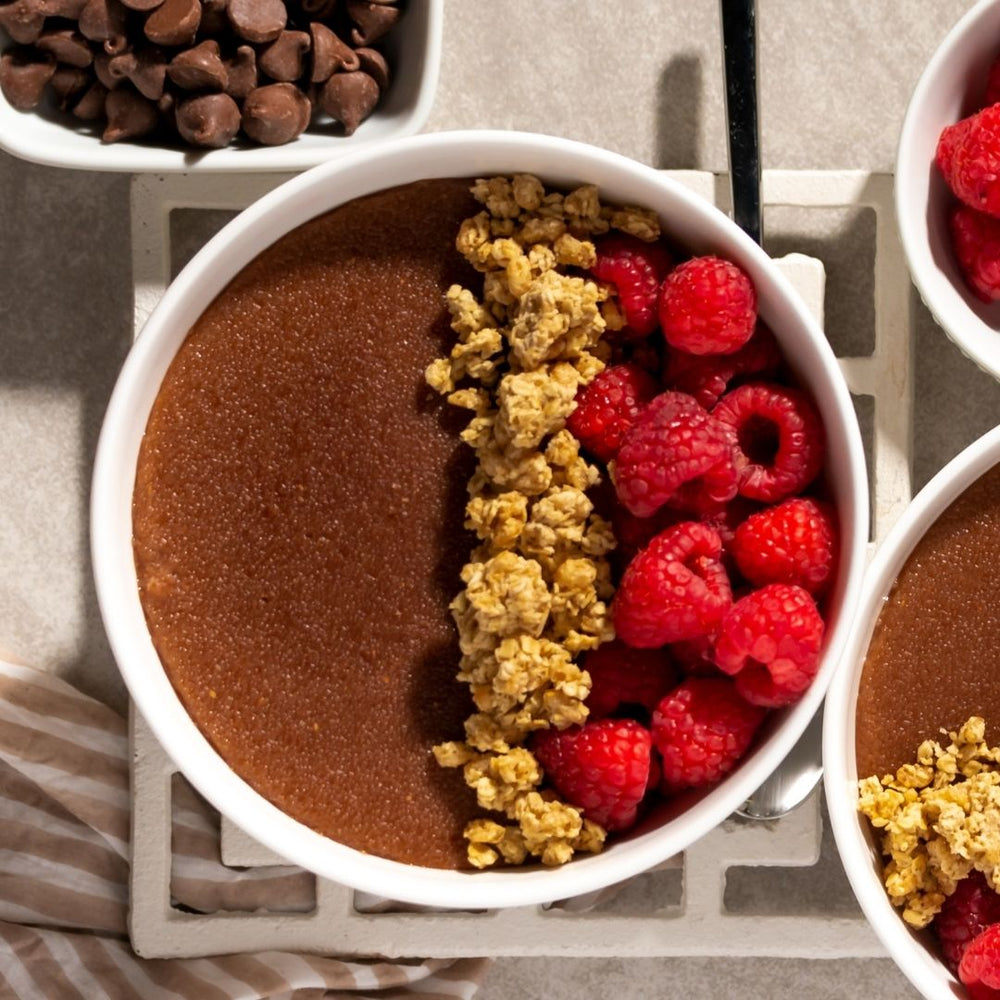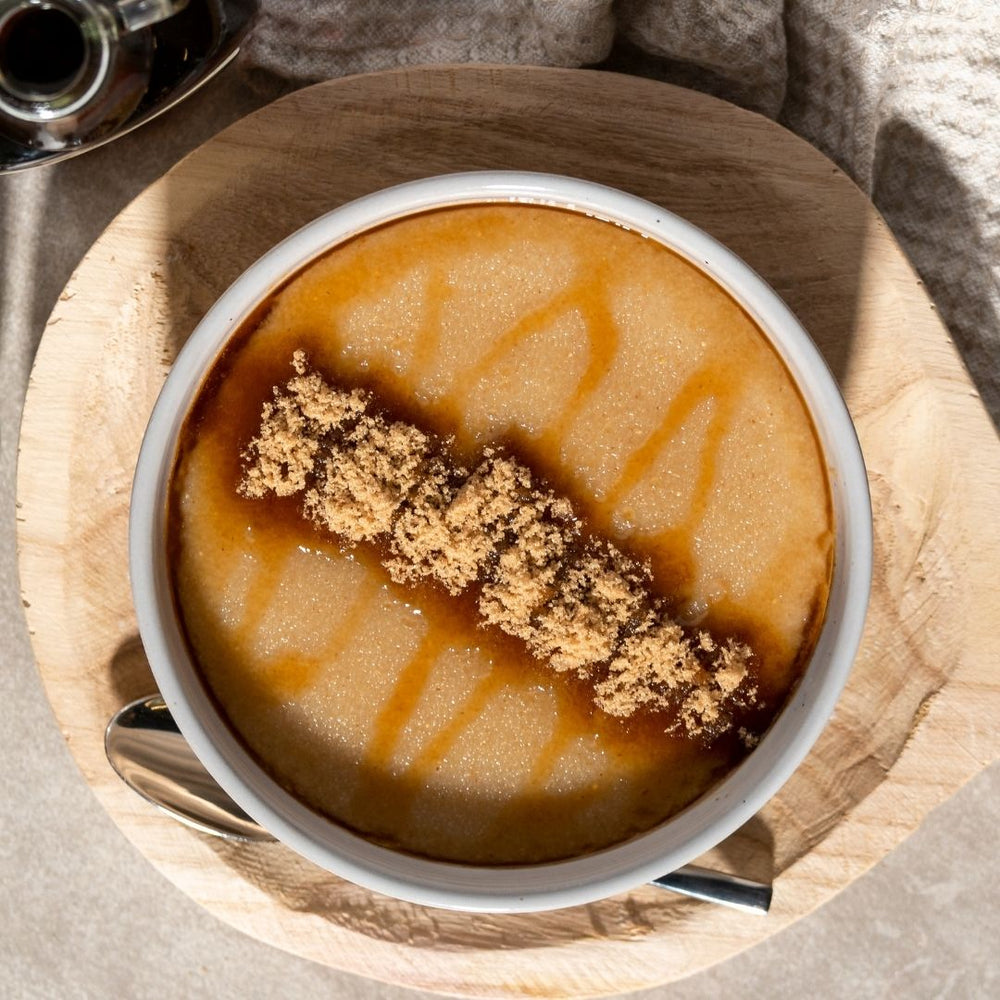Benefits of Organic All-Purpose Flour
These days, organic foods are available in nearly 20,000 natural food stores and about three-quarters of conventional grocery stores. And with sales of organic foods climbing, you might be wondering what all the fuss is about.
We're here to walk you through what it means when you see organic options popping up alongside your main grocery staples. We all want to know what we're cooking with and putting into our mouths, after all!
When it comes to organic all-purpose flour specifically, there are definitely some differences and benefits you should be aware of. Keep reading to learn all you need to know about organic vs. “regular” flour and the benefits you can expect from buying organic.
Differences Between Organic All-Purpose Flour and “Regular” Flour
Before we get into the benefits of organic all-purpose flour, it will be helpful to define some of the most important terms you might find on flour bags in the baking aisle of your grocery store. These include “bleached” and “bromated.”
When flour is “bleached,” this means that the wheat germ and the wheat bran have been removed from the grain. Bleaching also artificially ages the flour through the use of chemicals like benzoyl peroxide and chlorine gas. This process produces a whiter flour with a finer grain.
When flour is “bromated,” this means it has been treated with potassium bromate. This is supposed to improve the elasticity of the dough and produce a higher rise. This is particularly popular for bread flours, although most commercial flours are bromated.
Organic flour has not gone through these various treatment procedures, and the wheat is grown differently than the wheat used to make other flour. Let’s get into some of the benefits.
Organic Is Pesticide-Free
Organic flour is milled from wheat that grows in soil only fertilized by natural substances. Farmers do not use pesticides on these grains. It’s not artificially processed or chemically aged as described above, making it a more natural alternative to other commercial flours.
Additionally, organic flour keeps its germ and bran intact, unlike other processed flours. This can be better for how our bodies process carbohydrates and help regulate our blood sugar.
Organic grains are also able to absorb more nutrients from the soil. This means it grows more robustly, and it’s able to maintain a lot of those nutrients. The final product is a flour that’s a lot more nutritious since those nutrients are more available to the body.
Better-Tasting Baked Goods
While some bakers say they can’t taste the difference between regular and organic flour, using organic flour as one of your baking ingredients can help you ensure the best-tasting baked goods.
When flour goes through the artificial aging process of bleaching and bromating, it can be left with a bitter aftertaste. Organic flour, on the other hand, goes through a natural aging process. When exposed to oxygen, the aging process over time helps accentuate the grain’s natural flavors.
This ultimately results in a better-tasting flour and better-tasting baked goods.
Better for the Environment
For the most part, organic farming (and, therefore, organic flour) is better for the environment. While non-organic farmers can produce higher yields meaning they have to use fewer fields, there are many negative environmental impacts of non-organic farming methods.
Pesticides and fertilizers, for example, that are often used in non-organic farming practices can be so strong that they kill many insects that other animals like to eat. Toxic residues can travel through the food chain, ultimately endangering many of these species as well as their sources of food.
Organic farmers don’t use any of these pesticides. They use natural fertilizers and crop rotation to help keep pests at bay. While they can’t necessarily produce as high a yield, they can protect the insects and wildlife in the surrounding area.
How to Choose the Best Flour
If you’re still on the fence about whether organic cooking is for you, there are a few things to consider to help you decide if you should pick up that bag of organic flour.
First and foremost, you can use organic flour in any of your favorite recipes you’re already making. There’s no big difference when cooking with organic flour or regular flour.
It’s versatile and can be used in a range of baked goods. It’s not something you would buy to only use for special occasions or only in a couple of recipes. You can use it in your regular, everyday cooking!
Second, you may be wondering about the price. Organic flour does tend to be more expensive than regular flour, but you get a number of benefits for the price! You’re making a choice to support your health and the environment.
Buy the Best Flour for You
When it comes to buying flour, it’s important to take your personal preferences into account. Every flour is a little bit different, and it can affect the outcome of your baked goods. But one thing you can always do is make sure you’re starting with the best quality flour you can find.
At Lehi Mills, we focus on quality ingredients. We’ve worked alongside farmers to develop a wheat variety that retains high quality while helping to increase the farmers’ yield.
If you’re ready to get cooking, make sure to browse our flour selection today. Our organic all-purpose flour is a great choice.













Leave a comment